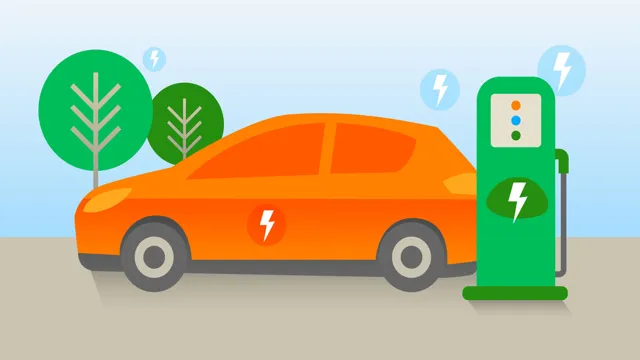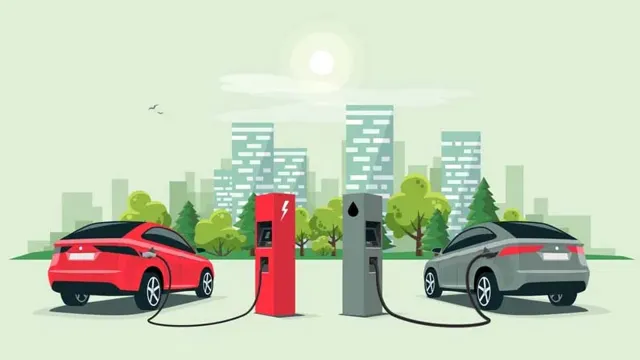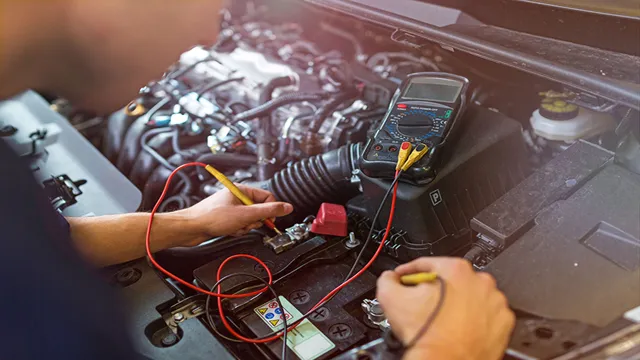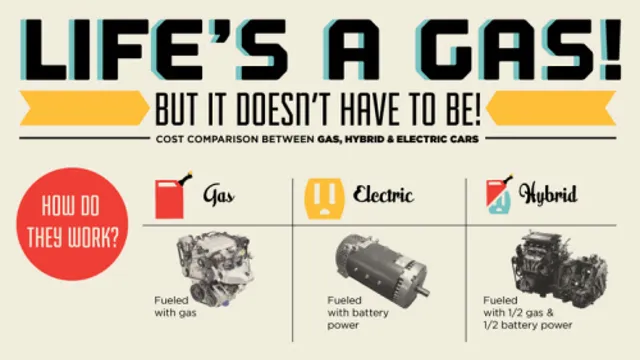Electric vs Gas: A Cost Comparison of Maintaining Your Vehicle
Everyone knows that electric cars run cleaner, are better for the environment, and provide a smoother driving experience. But what about maintenance costs? When it comes to electric vs. gas cars, which is more expensive to maintain? While it may seem counterintuitive to think that electric cars might require less maintenance than their gas-powered counterparts, the truth is that there are some key differences between the two.
In this blog post, we’ll explore the various factors that contribute to electric and gas car maintenance costs, and help you determine which one will save you more money in the long run.
Initial Cost
When considering the cost to maintain an electric car versus a gas car, the initial cost is a major factor to consider. Electric cars can have a higher upfront cost than their gas-powered counterparts due to the advanced technology and battery systems they require. However, it’s worth noting that there are government incentives and tax credits available to help offset this cost.
On the other hand, gas cars may have a lower upfront cost, but they require more frequent maintenance, such as oil changes, transmission fluid replacements, and tune-ups. These maintenance costs can add up over time, making electric cars a more cost-effective option in the long run. It’s important to weigh the initial cost versus the long-term savings when deciding between an electric car and gas car.
Electric cars cost more upfront
When it comes to purchasing an electric vehicle (EV), one of the biggest concerns is the initial cost. It’s no secret that electric cars are more expensive upfront than their gasoline-powered counterparts. However, it’s important to look at the bigger picture when making this decision.
While traditional vehicles may cost less in the beginning, they often require more maintenance and have higher fuel costs over time. Plus, there are government incentives and tax breaks available that can help offset the higher cost of an EV. Ultimately, the initial cost of an electric car should be viewed as an investment in a more sustainable future.
By choosing to drive an EV, you’re contributing to a cleaner environment and reducing your carbon footprint. So, while the upfront cost may be higher, the long-term benefits are well worth it.

Gas cars usually have more affordable options
When it comes to buying a car, one of the main factors that buyers consider is the initial cost. Gas-powered cars usually offer more affordable options compared to their electric counterparts. This is because gasoline engines have been around for a long time and are already well-established in the market.
As a result, car manufacturers have been able to refine and optimize their production processes which leads to lower costs. On the other hand, electric cars are still relatively new, and the technology is still in the early stages of development. This means that the cost of producing electric cars is still relatively high, which reflects in their higher price tags.
However, it’s important to remember that while gas cars may have lower initial costs, they may end up being more expensive in the long run due to factors like fuel expenses and maintenance costs. Ultimately, the decision to go with a gas-powered car over an electric one should be based on multiple factors, including personal preferences, driving habits, and budget.
Fuel Costs
When it comes to comparing the cost to maintain an electric car versus a gas car, the stark difference in fuel costs immediately stands out. Gas cars have been around for over a century, and their reliance on non-renewable fossil fuels has led to fluctuations in gas prices. On the other hand, electric cars run on electricity, which is cheaper and more predictable than gas.
The cost of charging an electric car varies depending on your location, but it’s generally lower than the cost of filling up a gas tank. In fact, some electric car owners have reported saving thousands of dollars in fuel costs over the lifetime of their vehicles. Plus, as renewable energy sources like wind and solar power become more common, electric cars will only become more cost-effective.
Overall, while the initial cost of purchasing an electric car may be higher than that of a gas car, the savings in fuel costs over time can make electric cars a more affordable option in the long run.
Electric cars are cheaper to charge than gasoline cars are to fill up
As electric cars become more popular, one of the biggest advantages is their lower fuel costs. While gas prices can fluctuate greatly depending on economic factors and international politics, electricity prices are generally more stable. This means that electric cars are cheaper to charge than gasoline cars are to fill up.
Additionally, electric cars are more energy efficient than gasoline cars, so you get more miles per kilowatt-hour than you do per gallon of gasoline. There’s also the convenience factor. With an electric car, you can simply plug it in at home overnight and wake up to a full “tank.
” Or, if you’re out and about, you can easily find public charging stations that often offer free or low-cost charging. All of these factors add up to significant savings on fuel costs over the life of an electric car. So, if you’re looking to save money and reduce your environmental footprint, an electric car may be the way to go.
Gas cars may be more expensive to fuel in the long run
Gasoline-powered cars have long been the norm for transportation. However, as gas prices continue to rise, it is becoming more expensive to fuel these vehicles. In the long run, opting for a gas car over an electric one may mean spending more on fuel costs.
With electric cars, drivers can power their vehicles using electricity, which is cheaper and more environmentally friendly. Gas prices have also been known to fluctuate, making it difficult to anticipate how much a full tank will cost. Taking these factors into consideration, it’s becoming increasingly clear that electric cars may be the better investment in terms of fuel costs.
While gas cars may be cheaper upfront, the savings will likely be offset by the long-term cost of gasoline.
Maintenance Costs
The overall cost of owning an electric car versus a gasoline-powered one has always been a hot topic for many consumers, but one area where electric cars excel in terms of affordability is maintenance costs. Electric cars are designed with simplicity in mind, and as such, they have fewer moving parts that require maintenance compared to gas-powered vehicles. For instance, electric cars have no oil changes needs, spark plugs, and transmission fluid changes.
Additionally, electric cars tend to have fewer brake pad replacements because of regenerative braking that sends energy back to the battery as the driver slows down. While it may be costlier to purchase an electric car initially, the savings made over the life of the vehicle on maintenance makes it sound investments in the long run. With gas prices on the rise every year , it’s safe to say that the cost to maintain an electric car vs gas is becoming more and more favorable for electric cars.
Electric cars have fewer moving parts and require less maintenance
With fewer moving parts than traditional combustion engine vehicles, electric cars require less maintenance, which can significantly reduce maintenance costs in the long run. Long gone are the days of oil changes, air filter replacements, and other routine maintenance tasks that come with traditional cars. Electric cars require minimal maintenance, primarily consisting of periodic brake pad replacement and tire rotations.
The electric motor does not have a transmission with complex moving parts that can wear out or break, leading to significant repair costs. Additionally, electric cars have regenerative braking systems that can extend brake lifespan by utilizing the electric motor’s power to slow down the car. Overall, electric cars can allow drivers to save money on maintenance costs and ensure the car’s longevity while also reducing harmful emissions.
Gas cars require more upkeep, from oil changes to transmission repairs
When it comes to maintaining a gas car, there’s no doubt that there are more costs involved compared to electric cars. One of the biggest expenses is regular oil changes; gas-powered engines require them every 5,000 to 7,500 miles, which can add up over time. Other essential upkeep includes routine checks on the transmission system, which can become quite costly if major repairs are needed.
With an electric car, these maintenance costs are significantly lower. Since electric vehicles don’t have engines that require oil changes, you can save yourself a considerable amount in maintenance expenses. As the electric car industry continues to grow, it’s clear that it offers a much more sustainable and wallet-friendly option for drivers who want to minimize their maintenance and upkeep expenses.
Summary
So you’ve been considering an electric car, but you’re wondering about the cost to maintain it compared to a gas car. Well, the good news is that electric cars typically have lower maintenance costs than their gas counterparts. That’s because electric cars have fewer moving parts and fluids that need to be changed, such as oil and transmission fluid.
Additionally, electric motors don’t require the same type of maintenance that internal combustion engines do, like replacing spark plugs and timing belts. However, the cost of battery replacement can be a concern, as batteries have a finite lifespan and can be expensive to replace. But, advancements in technology and decreasing costs of battery production are making this issue less of a concern.
Overall, when considering the cost to maintain an electric car vs a gas car, electric cars come out on top with lower maintenance costs and a more sustainable impact on the environment.
Electric cars can save you money overall but require a higher initial investment
In summary, electric cars can ultimately save you money on fuel costs and maintenance in the long term, but require a higher initial investment compared to traditional gasoline vehicles. While the upfront cost of an electric car may seem daunting, it’s important to consider the potential savings over time. Electric cars are much more energy-efficient than their gas-guzzling counterparts, meaning you’ll spend less money on fuel in the long run.
Additionally, electric cars require much less maintenance due to their simpler mechanics, which can save you money on repairs and upkeep. While the higher initial cost may be a barrier for some, it’s important to consider the long-term savings potential of electric cars. With more and more charging stations popping up around the country and advances in battery technology, electric cars are becoming a more viable and cost-effective option for many drivers.
Conclusion
In conclusion, the cost to maintain an electric car versus a gas car can vary depending on a multitude of factors. Though electric cars may have a higher upfront cost, their cheaper charging costs and reduced maintenance needs can save drivers a significant amount of money in the long run. Plus, with the added bonus of being better for the environment, making the switch to electric just may be the savvy and responsible choice.
So, whether it’s for financial or ecological reasons, the electric car is a cost-effective and sustainable option that will definitely give gas cars a run for their money.”
FAQs
Are electric cars cheaper to maintain than gas cars?
Yes, electric cars are generally cheaper to maintain than gas cars due to the simpler design and reduced maintenance needs of electric motors.
What are some of the maintenance costs associated with gas cars that electric cars don’t have?
Gas cars require regular oil changes, air filter replacements, and more frequent brake pad replacements, which can add up to significant maintenance costs over time.
Are there any unique maintenance expenses associated with electric cars?
Electric cars may require battery replacements or repairs, which can be expensive, but these costs are partially offset by the reduced overall maintenance needs of electric motors.
How does the cost of charging an electric car compare to the cost of filling up a gas car?
The cost of charging an electric car is typically significantly cheaper than the cost of filling up a gas car, especially if the electric car is charged overnight when electricity rates are lower.






